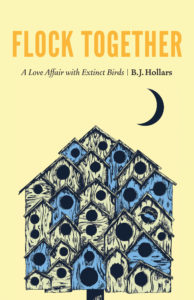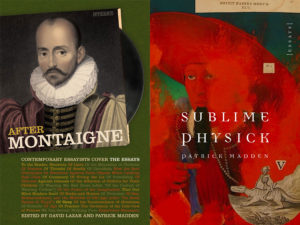 Intern Sarah Dillard, interviews Haley Larson about her experience as a poetry editor for Superstition Review.
Intern Sarah Dillard, interviews Haley Larson about her experience as a poetry editor for Superstition Review.
Haley Larson is one of the two poetry editors that is interning with Superstition Review this semester. Her background is unique, as she received her Bachelor Degree in Psychology and with a minor in Music from the University of Nebraska. She is currently working on her second bachelor degree in English with a Creative Writing emphasis. Next fall, Haley will be headed to Graduate School to work on her Master’s in Poetry.
With the launch of Issue 3 right around the corner, interns have been busy finishing up tasks and projects. Haley was gracious enough to take time out of her busy schedule to share what her experience has been like with Superstition Review thus far.
Sarah Dillard: What led you to pursue a position with Superstition Review?
Haley Larson: I had ENG 411 with Trish, and she encouraged me to consider it. Having never done anything like this before, I wasn’t originally planning to apply–I didn’t think I’d have the time or experience necessary. It has turned out to be a highlight of my undergrad work. The hands-on experience is invaluable.
SD: What are some of your favorite poets and how do they impact you?
HL: A few poets who I obsessed over at the beginning of my poetry interests include Neruda, e.e. cummings, and Sylvia Plath. Since then, I have had some phenomenal instructors who introduced me to an endless world of great poets: Larry Levis, Mary Oliver, Paul Guest, Kay Ryan, Arthur Sze, Bob Hicok. I think most of these poets impact me by challenging me. Their work urges me to reevaluate what I think poetry is and consider the infinite possibilities of what it can be. Whether they create a form, transform an intangible idea into an image, or turn written language to a musical serenade, they all make me jealous enough to try a little harder.
SD: How would you describe your experience so far with Superstition Review?
HL: This has been an absolute whirlwind! However, I can’t think of a better learning experience for a young writer. Not only do I get to see the up-close and inner workings of the publishing world and its processes, I get to be a part of them. There is an unmatchable sense of accomplishment in having my input considered and progressing toward the launch of what is sure to be a stellar third issue. I have improvised through a few moments, but that’s the unique feature of this applied learning environment–it’s encouraged that we “do” rather than “be told.” I’ve learned to take initiative and scramble when necessary. And I will admit, I’m still the poetry equivalent of star-struck when I get to email back and forth with poets I admire.
SD: What are your responsibilities as one of the Poetry Editors of Superstition Review?
HL: My responsibilities include communicating with our solicited poets, reading and considering submissions that come in, sending acceptance and rejection emails, and a variety of other tasks that present themselves. More generally, I must meet deadlines, keep some sense of organization, and be flexible. I’m looking forward to interviewing Barbara Hamby and David Baker in the coming week. Researching their work and letting my curiosity run a bit is a great opportunity disguised as responsibility.
SD: What do you look for when deciding which poetry submissions to publish? Do you try to stay open minded throughout the process or do your own personal preferences play a role?
HL: Some key things I look for are attention to rhythm and musicality, sentient imagery, and fresh interpretations of language. The capacity to elicit emotion is an obvious element, I think. I look for the ability to experience the poem without having it forced upon me. I definitely try to stay open-minded, but I’m sure that I carry a bit of my own aesthetic into the role. In fact, I hope that my aesthetic continues to evolve throughout this internship. One of the most important things I’ve learned in this position–being part of a publication–is that it’s important to keep our readers in mind.
SD: What are your plans after this semester?
HL: I plan to attend an MFA program in poetry.
SD: What is the most useful piece of advice you would give to future Superstition Review interns?
HL: Jump in and get your hands dirty! Ask questions (I have asked a few hundred since January) but also trust yourself a little. It can be nerve-wracking jumping into a world that you’ve only read about, but everyone is so helpful and supportive.
SD: What do you hope to take away from your experience with Superstition Review?
HL: I hope to take away valuable skills suited to publishing, a more evolved aesthetic, and a sense of confidence and accomplishment. I can’t think of a better way to prepare myself for my professional pursuits in the poetry world.



